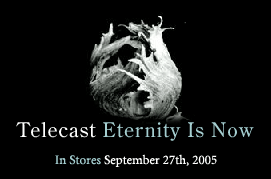 All I Want for Christmas is CHRISTMAS
All I Want for Christmas is CHRISTMASI've had to do a lot of thinking about this one. Ever since I was born my family has done Christmas much the way the rest of the world does. The tree, the presents, the church, the feasts...etc. But a few things have changed since I've been away at college. One of those things being that my heart was regenerated by the Holy Spirit and the Lord gave me new desires. My other immediate family members are Christians as well. My family is growing in many ways. However, we have not grown out of the way we do Christmas...and I have just now realized it. In fact, it was not until during a prayer meeting at Living Hope that I realized that I had bought into consumer-driven Christmas.
As December began I started fretting about what to buy my family and what I could get them. I spent long hours on ebay looking for good books and hard to find items, and being quite successful in my searching. But the more I bought for my family, I could not get over the conviction that what I was doing was empty. I could not answer the question of why I was buying the gifts. Of course, I knew the gifts were for others, but still...why was I buying them? What it boiled down to was that I felt compelled to buy them. There was this habit formed by 2o years of Christmas that was controlling what I did. It was almost as if there was this obligation to buy the perfect gift for my family and for Bethan. For what? I don't know. I felt like a robot. This isn't the worst part...
I always hear Christians talking about the "real reason for the season" (notice the token catchy Christian subculture phraseology?). Pastors everywhere preach sermons about how Christmas is really about Jesus' birth; about God coming to be with us, eventually to be crucified as a perfect sacrifice for our sins. And "amens" pour in from the congregations too. In fact, many people make a huge deal about the media and the department stores beginning to say "Happy Holidays" instead of "Merry Christmas". They claim they are taking Jesus out of Christmas. But I say differently. I say Christians are responsible for taking Jesus out of Christmas. Seriously. My family has also contributed their fair share. We are all believers, yet we still spend Christmas much the same way the world does. We spend awful amounts of money on gifts for each other and place them under a Christmas tree. Doesn't sound bad does it? But where did this tradition come from? And even if some good people began the tradition, is it Biblical and is it right? Christmas trees come from pagan druidic cultures who worshiped trees...how did that get incorporated into Jesus' birthday?
Perhaps this blog is written more specifically to those of us who have a family full of believers. Why have we bought into the world's Christmas? Why is there no time of worship Christmas morning? Why are some churches not holding services this year because Christmas has fallen on Sunday? Why are we showing our children that Christmas is about getting presents? I don't care how many times you read the Christmas story to kids on Christmas morning, they are still antsy to get presents. If Christians are really serious about Christmas being all about Jesus, why are WE the ones getting gifts? Why don't we spend the money on something better? I have a good friend (along with his girlfriend) who is using the money he would have spent on Christmas to support a missionary. My grandparents sent a letter out this year saying they were not going to do the same ol' Christmas thing either; they instead gave the money to the Good Samaritan organization in Corpus Christi. To me, these are great examples of something better to do with the money.
No one will touch this subject though. I've yet to hear a pastor teach about it or even want to discuss it. I think there needs to be some things changed. In fact, if we look at the Magi in the Bible and what they did on Christmas we'll see something much different: They came from far away (far enough that it took them a couple years to get to Jesus) because they knew the prophecies and had seen the star. They followed it until they found Jesus and they worshiped him and brought HIM gifts. I'm not saying we have great gifts to offer Jesus (we have, in fact, none), but we can worship Him and we can adore Him. We can talk about Him with our loved ones. We can use money more wisely for the gospel to be spread. We can turn Christmas into a day to worship. We can preach about it. We can stop worrying about buying gifts for no reason. We can show our kids that Jesus is better than gifts. We can show the world that material things have no hold on our lives. We can get honest about what we have done to Christmas and finally stop blaming other people for why Christmas has become centered on gifts, trees, Santa, and materialism.
"And the Word became flesh and dwelt among us. And we have seen his glory, glory as of the only Son from the Father, full of grace and truth." - John 1:14. If we have seen his glory, it must change the way we do things.







